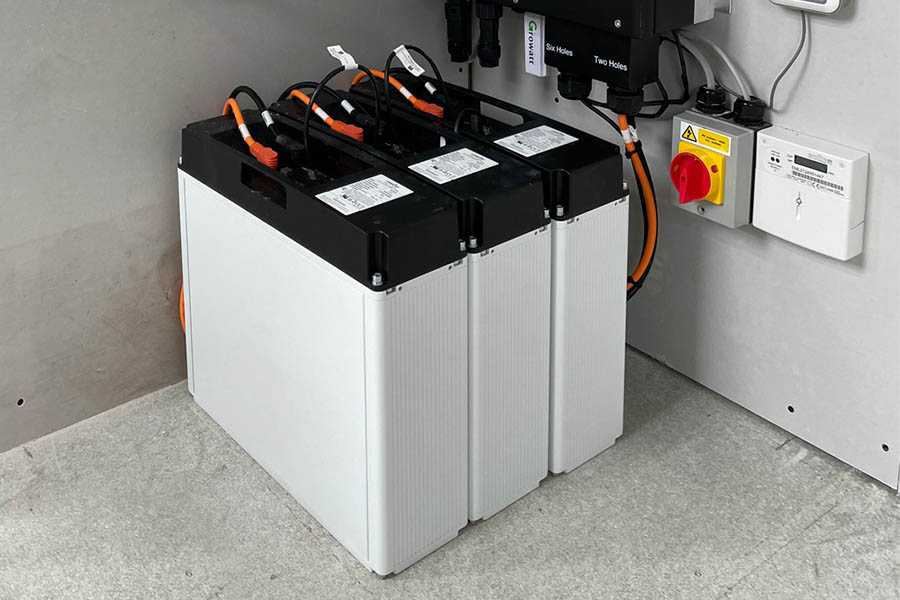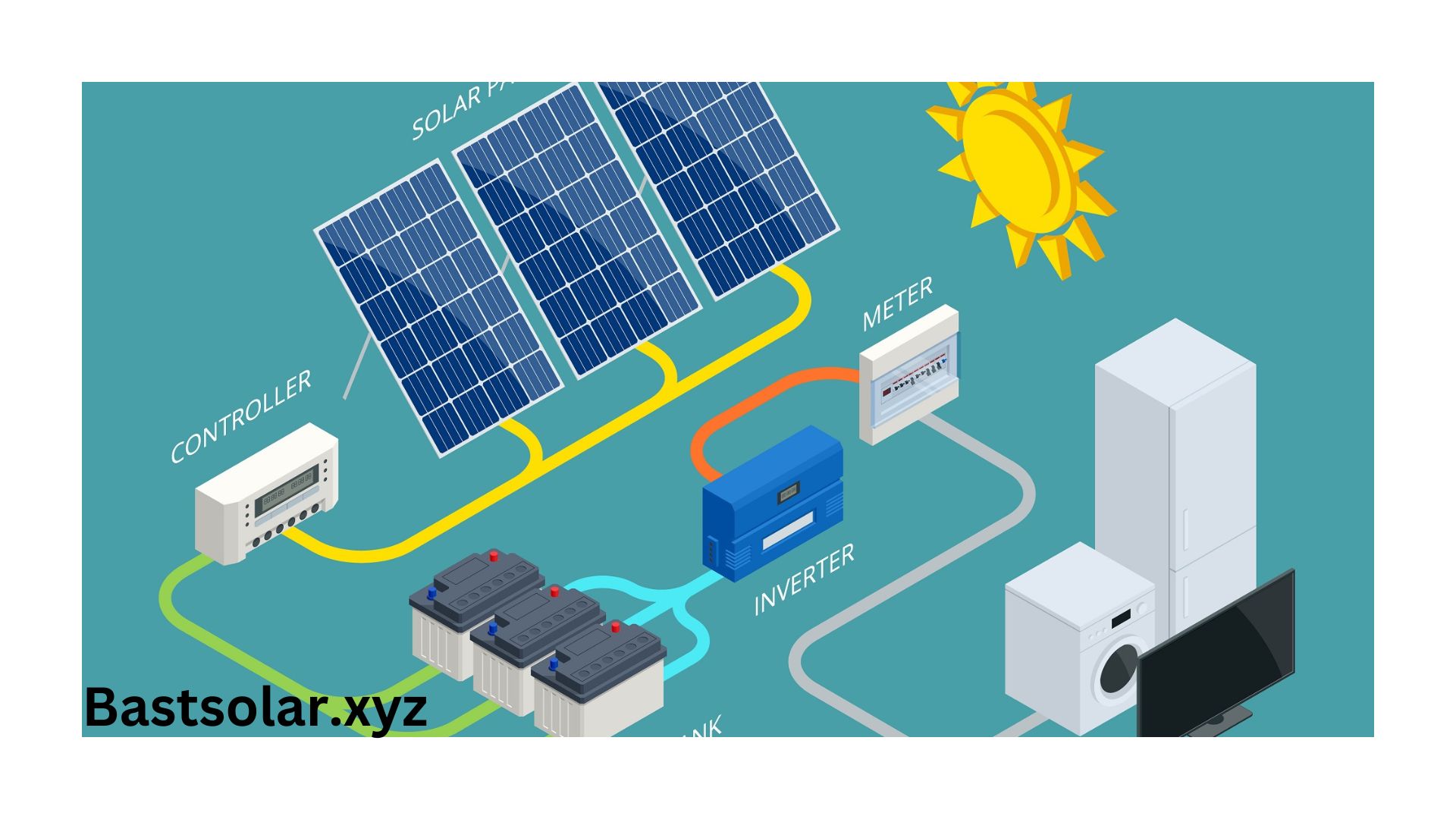Solar energy continues to dominate the conversation. At the heart of this revolution are solar batteries—a key component enabling the storage of energy produced from solar panels for later use. In this comprehensive guide, we will explore what solar batteries are, how they work, their benefits, and how they are transforming energy consumption.
What is a Solar Battery?
A solar battery is an energy storage device that stores electricity generated by solar panels. It allows homeowners and businesses to store surplus energy and use it when the sun isn’t shining, such as at night or during cloudy days. This stored energy can then power your home or business, offering greater flexibility and energy independence.
Most modern solar batteries are made from lithium-ion technology, known for their durability, efficiency, and longer lifespan compared to older models such as lead-acid batteries. The Guide to Solar Batteries: Powering the Future of Energy.
How Does a Solar Battery Work?
The process is relatively simple. Solar panels collect sunlight and convert it into electrical energy through a photovoltaic (PV) system. Typically, during sunny days, solar panels generate more electricity than is needed, especially during peak hours. The surplus energy gets stored in the solar battery. Later, when the sun is not available, this stored energy is discharged, providing power to your home or business.
This seamless energy flow allows consumers to rely less on the traditional power grid, reducing electricity bills and the environmental impact of non-renewable energy sources.
Benefits of Solar Batteries
Solar batteries come with a host of benefits, making them an attractive choice for those looking to optimize their energy usage.
- Energy Independence
One of the primary advantages of installing a solar battery is energy independence. You no longer have to rely solely on your utility company for electricity. Instead, you can store the excess power generated by your solar panels and use it when you need it most. This is especially important in regions inclined to blackouts. - Lower Electricity Bills
By storing solar energy, you can minimize the electricity you draw from the grid. This leads to a significant reduction in monthly energy bills. Additionally, some areas offer “net metering” programs where you can sell excess energy back to the grid, making solar batteries even more cost-effective. - Environmental Impact
The progress from petroleum products to environmentally friendly power sources is basic in the battle against environmental change. Solar batteries play an essential role by ensuring that every watt of solar power you generate is utilized efficiently. This reduces dependence on non-renewable energy, minimizing carbon footprints. - Backup Power During Outages
With the rise of extreme weather events, power outages are becoming more common. Having a solar battery means you are prepared for these situations. It can provide critical backup power, keeping essential systems like refrigerators, lighting, and medical devices running.

Types of Solar Batteries
Understanding the different types of solar batteries will help you make the right choice for your energy needs. Here are the most common ones:
- Lithium-Ion Batteries
Lithium-ion batteries are currently the most popular type for home solar systems. They are known for their high energy density, long life cycle, and fast charging capabilities. These batteries are lightweight and more compact than traditional lead-acid batteries. - Lead-Acid Batteries
Lead-acid batteries are an older technology but are still in use today, particularly for off-grid solar systems. While they are more affordable than lithium-ion batteries, they have a shorter lifespan and lower efficiency. - Flow Batteries
Flow batteries are emerging as a promising technology for large-scale energy storage. They use two liquid electrolytes that store energy in separate tanks. These batteries offer long lifespans and the ability to discharge 100% of their stored energy without degrading over time. However, they are typically larger and more expensive, making them less suitable for residential use.
Factors to Consider When Choosing a Solar Battery
Before investing in a solar battery, it’s crucial to understand the factors that will influence your choice:
- Capacity and Power Rating
The capacity of a battery refers to the total amount of electricity it can store, measured in kilowatt-hours (kWh). Power rating, on the other hand, tells you how much energy the battery can deliver at a given time. Depending on your energy needs, you’ll need to balance both factors to choose the right battery for your home. - Depth of Discharge (DoD)
Profundity of release alludes to the amount of the battery’s ability can be utilized before it should be re-energized. Batteries with a higher DoD are more efficient since they allow you to use more of the stored energy. - Round-Trip Efficiency
This metric measures the efficiency of the battery in converting and storing energy. Higher round-trip efficiency means more of the energy your solar panels generate gets stored and used. - Lifespan and Warranty
Look for a solar battery with a long lifespan and a solid warranty. The average battery lasts between 10 to 15 years, so make sure you choose one that will serve your energy needs for a long time. The Guide to Solar Batteries, Powering the Future of Energy .
FAQs About Solar Batteries
1. How long does a solar battery last?
A well-maintained solar battery can last between 10 to 15 years, depending on the type and how often it’s used. Lithium-ion batteries tend to have longer lifespans compared to lead-acid batteries.
2. Can I use solar power at night?
Yes, that’s the primary function of a solar battery. It stores excess energy produced during the day, which can then be used at night or during cloudy days.
3. How much does a solar battery cost?
The cost of a solar battery depends on the brand, capacity, and technology. On average, a residential solar battery can cost between $5,000 and $15,000, including installation.
4. Do solar batteries work during power outages?
Yes, many solar batteries are designed to provide backup power during outages, but you will need a system configured with an inverter that supports off-grid functionality.
5. Is a solar battery worth it?
While the upfront cost of a solar battery may be high, the long-term savings in electricity bills, combined with the environmental benefits and energy independence, make it a worthwhile investment for many homeowners.
Conclusion
The integration of solar batteries with solar panels is revolutionizing the way we think about energy consumption. By providing a reliable storage solution, these batteries help you maximize the use of renewable energy, cut electricity costs, and reduce dependence on the grid. Whether you’re looking for energy independence, backup power, or just a greener way to live, solar batteries offer a forward-thinking solution for the modern world.




















